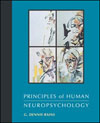Of all the psychological functions of which humans are capable, language is perhaps the most remarkable, important, and uniquely human. Other species, such as the honeybee, have evolved some elaborate systems for communicating information, and some primates have been taught to use components of human language. But as far as is currently known, no other species possesses a communication system comparable to human language. There are several features that distinguish human language from these other communication systems. Human language is infinitely creative. Speakers don't simply repeat what they have heard; rather, they invent novel sentences, many of which must be unique. This contrasts markedly with systems of other species, which, as far as is known, communicate a narrow range of rather specific and present-oriented information. To be sure, such information can be highly important, as when a honeybee conveys information about the location of a potential source of nectar to the rest of the hive or birds signal their readiness, perhaps even their yearning, for sexual union through intricate mating rituals. These are certainly kinds of communication that our species takes very seriously. Yet for all their importance, communications such as "Nectar 300 yards at 48 degrees left of the sun" and "I want to mate with you" are uncomplicated, and the communication systems that underlie them in other species appear to be limited with regard to the subtlety, nuance, and complexity of the messages that they can transmit. In contrast, human language is infinitely rich in possibilities of meaning, as exemplified by Prospero's speech in The Tempest: Our revels now are ended: and our actors— As I foretold you—were all spirits and Are melted into air, into thin air; And like the baseless fabric of this vision The cloud capp'd towers, the gorgeous palaces, The solemn temples, the great globe itself, Yes, all which it inherit, shall dissolve And like the insubstantial pageant faded Leave not a trace behind: we are such stuff As dreams are made on, and our little life Is rounded with a sleep… But one need not quote Shakespeare to illustrate this point. We all use language to send and receive messages of infinite variety and subtlety of meaning. | 


 2002 McGraw-Hill Higher Education
2002 McGraw-Hill Higher Education

 2002 McGraw-Hill Higher Education
2002 McGraw-Hill Higher Education